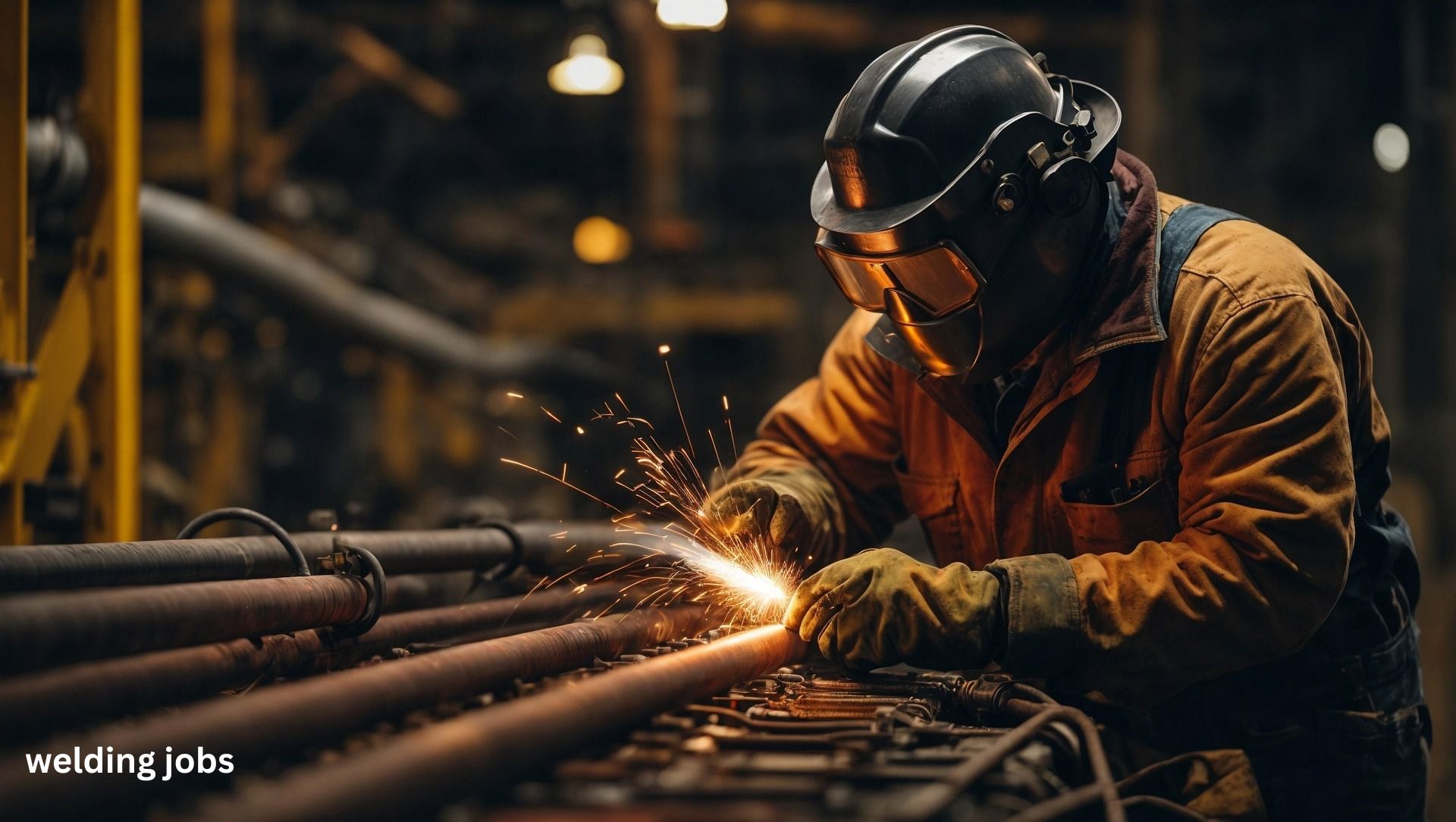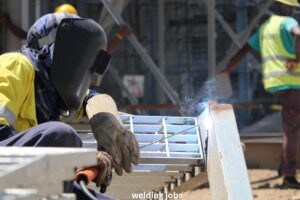Introduction
Welding jobs is a technique that involves combining metals by applying intense heat and pressure. It is an essential procedure in a variety of industries, including construction, manufacturing, aerospace, and automotive. Welders play a vital role in the construction and upkeep of machinery, equipment, and infrastructure. As industries continue to develop, there is a growing demand for qualified welders, which has resulted in a growth in the number of career options available.
Key Functions in the Welding Process
Structural Welders
Work on projects including buildings, bridges, and other infrastructure, maintaining the structural integrity of the structures through the use of precise welding processes.
Welders for Pipes
You will frequently be required to work in difficult circumstances while specializing in pipe joining for industries such as oil and gas, water treatment, and chemical processing.
Welders who operate underwater
Utilize your talents in welding in conjunction with commercial diving in order to repair ships, offshore infrastructure, and pipelines that are located below the surface of the ocean.
Welders for the Automotive Industry
Your primary focus should be on building and repairing vehicles, such as automobiles, trucks, and heavy machinery, while ensuring their safety and effectiveness.
Welders for the aerospace industry
Perform work on components of airplanes and spacecraft, which requires precision and respect for stringent safety regulations.
Credentials and educational background
Typically, becoming a welder requires the following:
In many cases, a high school diploma or its equivalent is required for job applications.
Completing a welding curriculum at a vocational school or community college, which includes instruction on techniques such as MIG, TIG, and arc welding, will be considered training.
Certification: Completing certification programs offered by reputable organizations, such as the American Welding Society (AWS), might improve one’s chances of finding employment.
Some employers offer apprenticeships, which allow individuals to receive training on the job while still receiving pay.
An Expectation of a Salary
The incomes of welders vary depending on factors such as experience, expertise, and location:
Welders who are just starting may earn approximately $40,000 per year.
Experienced welders can make between $50,000 and $70,000 annually.
Specialized welders, such as those who work in aerospace or submarine welding, can earn up to one hundred thousand dollars per year.
The average salary for welders in the United Kingdom has reached £33,500, representing a 9.5% increase in terms of income.
The Sun-Sun of Scotland
Trends in the Industry and the Job Market
It is anticipated that the need for welders will increase as a result of:
Bridges, roadways, and buildings are all examples of infrastructure projects that are now being constructed and maintained.
Increased production in the automobile, aerospace, and heavy machinery industries is an example of the manufacturing sector’s growth.
The retirement of skilled workers creates a skills gap that new welders can fill.
Welders are required to adapt to the changing industry and acquire new skills as a result of the integration of technology, such as robotic welding systems, which is transforming the industry.
There is a high demand for skilled welders across a variety of businesses, which is one of the advantages of pursuing a career in welding.
Competitive salaries: opportunities for substantial incomes, particularly in professions that require specialized knowledge.
You have the opportunity to advance your career by taking on managerial responsibilities or by beginning your own company.
I consider job satisfaction to be hands-on work that contributes to tangible and long-lasting initiatives.
Faced with Obstacles in the Field
Welding can be physically demanding, requiring a high level of stamina and strength from the welder.
Careful observance of safety measures is required to mitigate the risks associated with exposure to high temperatures, fumes, and heavy machinery.
Continual Learning: It is vital to maintain a level of familiarity with the most recent technology and processes.
Conclusion
Any individual who is interested in skilled crafts can pursue a career path that is both dynamic and fulfilling by welding. Welders have the potential to experience job security, competitive income, and the satisfaction of contributing to significant projects across a variety of industries if they have the appropriate training and demonstrate a level of dedication.
Now is a great moment to investigate the opportunities that are available in this industry because the demand for competent welders is expected to continue to increase.


